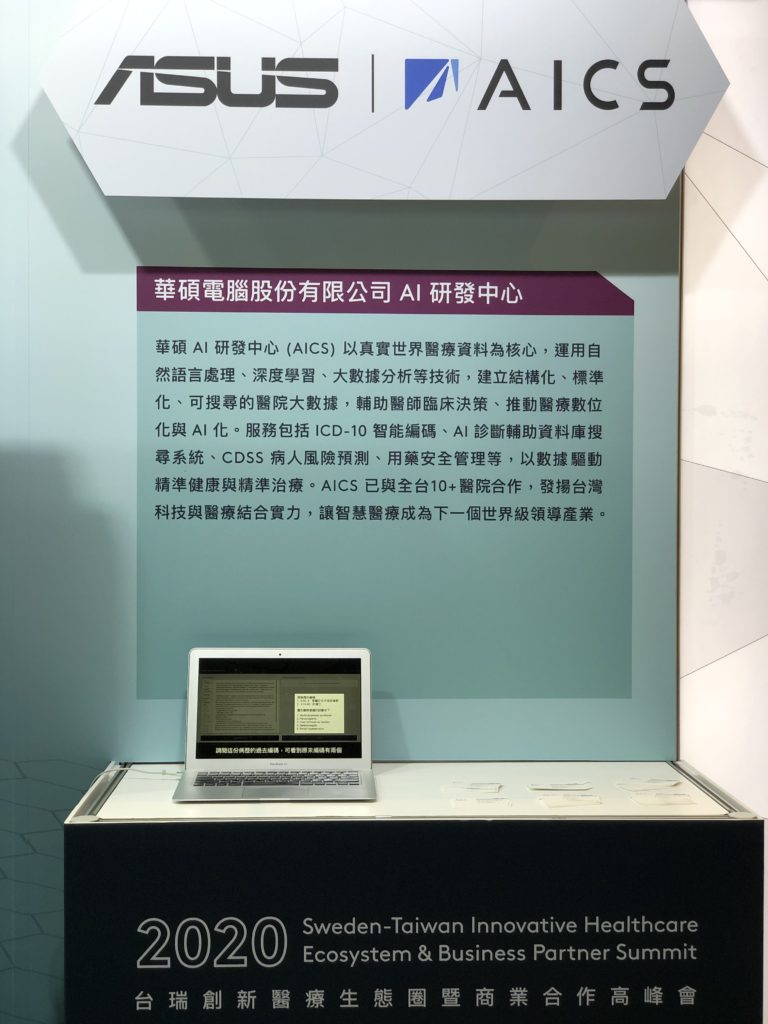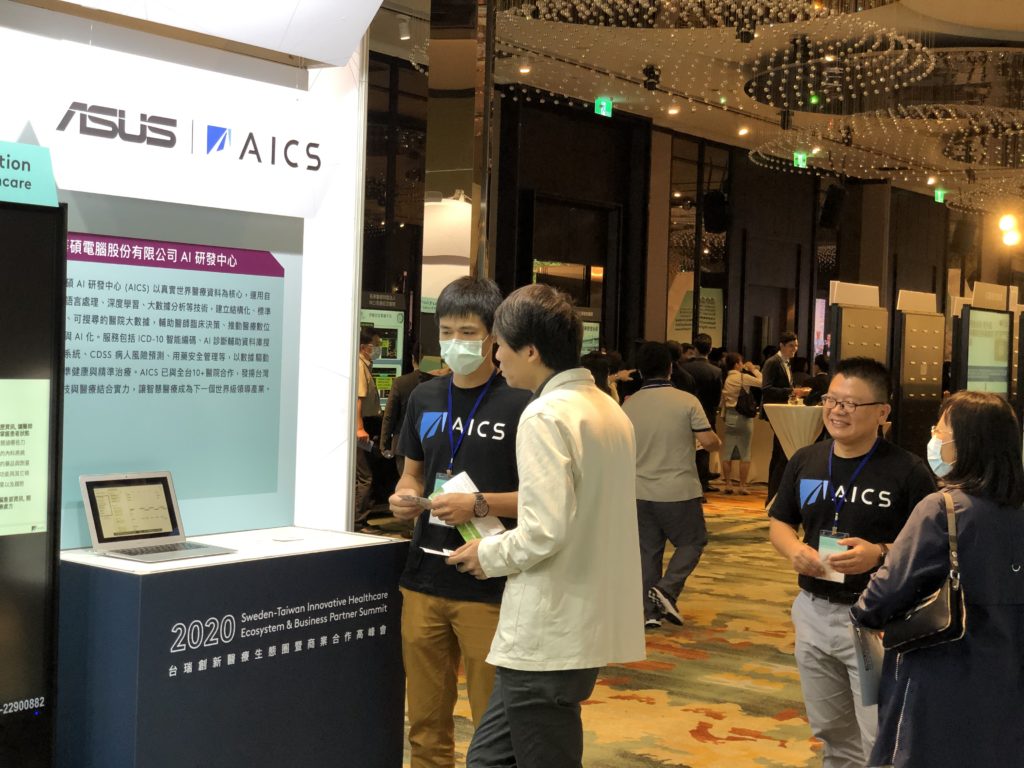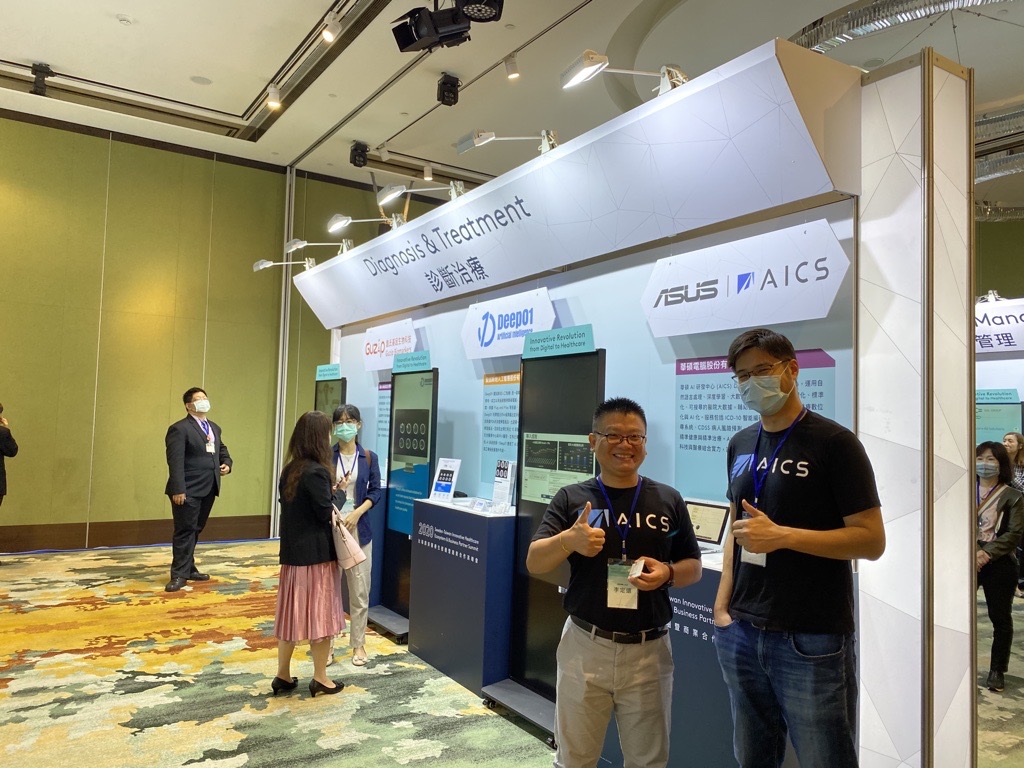AICS took part in the 2020 Sweden-Taiwan Innovative Healthcare Ecosystem and Business Partner Summit on 7 November. It was indeed an eye-opener to see that multiple stakeholders are teaming up to collaborate on projects leveraging the latest technological advancements to pioneer new growth in their respective disciplines. From improving risk stratification of asymptomatic cardiovascular disease patients using Neural Network algorithms, to cloud-based telemedicine services, it seems like the trend of digital transformation in the healthcare industry already seems to be strongly underway.
Throughout the course of the summit, an overarching theme revolves around the issue of building technologies in healthcare in super-scalable ways. Given the deep domain expertise required in the medical industry, as well as critical technical competencies in AI and computer science to build up working products, the need for suitable talents in this field to pioneer the growth remains a key obstacle. This is notwithstanding the issue of data privacy, especially when building AI models of patients. Balancing the practicality of results with ethical standards is key when driving digital transformation in healthcare, especially when patients entrust their data to stakeholders.
On this end, AICS understands the numerous factors in this transformation path when embarking on the Smart Medical journey. Embedded into our products are the core values of trust and innovation. These values translate into data privacy, user impact and scalability in product delivery. For instance, what started out a simple tool to assist physicians and coding specialists in ICD-10 tagging, proliferated into a full-fledged service that is deeply integrated with the Hospital Information System (HIS). This was made possible as strong measures are taken to anonymize and encrypt all patient data before further processing in Artificial Intelligence models. By adhering to hospitals’ codes of conduct, the professional engagement builds trust between hospital and AICS, based upon the belief that each stakeholder is collaborating in the betterment of patient care and efficiency. To date, AICS has collaborated with more than 15 hospitals in Taiwan including Tzu-Chi group of hospitals, Changhua Christian Hospital and Cheng Hsin General Hospital just to name a few.
In addition, the Clinical Decision Support System (CDSS) of hospitals is a field that AI can heavily contribute to, especially in the area of big data analytics and precision medicine. Given the complex make-up of diseases as well as the sheer volume of patients that healthcare professionals need to deal with every day based on human experience, diagnosis and treatments are prone to error. As such, CDSS aims to collectively analyze trends based on the algorithms trained on real-time data, to preemptively alert medical professionals should any anomaly is detected. This forms the core of optimizing hospital efficiency, which eventually translates into better care for patients.
It was a wonderful time to interact with everyone at the summit, along with great food and atmosphere. The advent of digital transformation is inevitable. Much as we love greater convenience and efficiency through technological applications, maintaining strong data privacy and ethical conduct when handling sensitive patient data is just as important.




